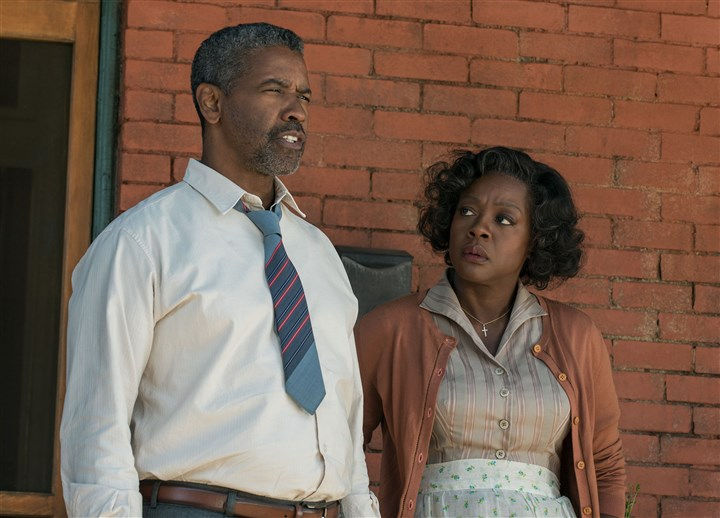Review: Fences
- Jan 4, 2017
- 3 min read

There is many a devastating scene in Fences, the film adaptation of August Wilson's Pulitzer Prize-winning play. That many of them are courtesy of stars Denzel Washington and Viola Davis, both reprising their Tony Award-winning roles from the 2010 revival, comes as no surprise. The film, whilst not without its flaws, derives its potency from their performances as well as the poetically heightened realism of Wilson's words.
The sixth in Wilson's ten-part Pittsburgh Cycles, Fences takes place in 1950s Pittsburgh and focuses on Washington's fifty-something Troy Maxson, a garbageman by profession and king of his domain once work is done at the end of each Friday. Those Fridays are what he lives for as it allows him to hold court in his backyard with his affable best friend Bono (Stephen McKinley Henderson) and wife of 18 years Rose (Davis), who humour his penchant for regaling them with seemingly tall tales from his life.
Yet those tales serve a purpose for Troy who, like On the Waterfront's Terry Malloy, could have been a contender. Once a baseball player in the Negro Leagues, he had the misfortune to come along too early and never found fame or fortune despite his talents. He's not particularly impressed with the fact that Jackie Robinson has opened up new opportunities in the sport for coloured men; his bitterness may emanate from the racial injustices of his own time, but it's also a by-product of his self-importance. Telling tall tales may be an innocuous way of massaging his ego, but his resentment over what was denied him manifests itself in his treatment of his wife and two sons, Lyons (Russell Hornsby) and Cory (Jovan Adepo).
Occasional visits from Lyons, his estranged son from a previous marriage, stokes Troy's ire. He refuses to believe that Lyons would ever pay back the money he so reluctantly loans to him and harangues Lyons for being a musician instead of holding down a responsible job. It must have been the way Lyons was raised, he concludes to which his son responds that Troy has no right to criticise how he was raised since he wasn't around for the raising. Cory, his son with Rose, fares no better. Though Cory has an opportunity to interview with a college football recruiter, Troy dashes that dream for him. If he couldn't succeed, then no one else can. When Cory wonders why his father doesn't like him, Troy lashes out at him, "What law say I gotta like you?" As far as Troy is concerned, giving his family a roof over their heads and food on the table is his duty, love is not part of his responsibility.
Then there's Rose, who does her best to keep Troy from burning bridges with both his sons and keep her family together by asking her husband to build a literal and symbolic fence around their home. Marrying Rose may be the one good thing that Troy ever did, but she's not immune from his selfishness. The moment when Rose realises the depth of Troy's self-regard is one of searing heartbreak; Davis makes her pain all too palpable and her ensuing fury as she tells Troy of the sacrifices she's made to keep the family intact is both wondrous and frightening to behold.
Washington is equally superb as Troy, conveying both the man's boundless charm and rotten righteousness. As director, he may perhaps be a touch too reverent to the source material, which was adapted for the screen by Wilson himself before his death in 2005 (playwright and co-producer Tony Kushner came on board to build on Wilson's draft). As a film, Fences never truly relinquishes its theatrical roots, which is not necessarily a knock on either Wilson or Washington. It's doubtful the film would have benefited from having its setting expanded, but it may have felt less stagebound with the elimination of certain characters (Troy's mentally impaired brother Gabe, played by Mykelti Williamson, is more symbol than character and feels particularly out of place outside the confines of the theater) and perhaps a bit more fluidity during the transitions between monologues.
Nevertheless, Fences is a film of immense resonance in today's day and age, a dense and daunting reminder that even the most ordinary of lives deserves to be acknowledged, and that the most mundane of lives can be elevated into art.
Fences
Directed by: Denzel Washington
Written by: August Wilson; adapted from his play
Starring: Denzel Washington, Viola Davis, Stephen Henderson, Jovan Adepo, Russell Hornsby, Mykelti Williamson, Saniyya Sidney





Comments